Gas leaks can cause some serious destruction to your property and create a hazardous environment in your home or workspace. Knowing how to prevent gas leaks is an important part of keeping both you and your family safe from harm.
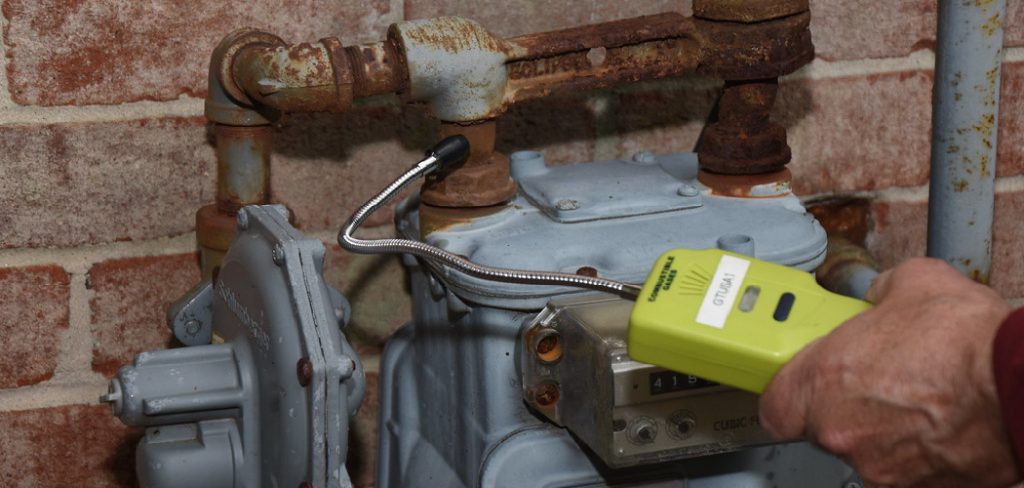
In this blog post, we’ll cover the signs of an impending gas leak, how to identify the source of a gas leak if one does occur, and what methods you should use to prevent them in the first place. By following these steps, you can mitigate most potential future risks – so read on to learn more!
What Causes Gas Leaks?
Gas leaks can be caused by a variety of factors. These include corrosion or damage to the gas lines, improper installation of the lines, incorrect maintenance or servicing of the lines, a sudden pressure change in the system, or faulty valves and regulators. Natural events such as earthquakes, floods and landslides can also cause gas leaks. The presence of tree roots and other outside elements near gas lines can create additional risks for gas leaks.
In order to prevent gas leaks, homeowners should inspect their appliances regularly for signs of wear and tear on the appliance connections. Additionally, they should look out for any discoloration or odors coming from the gas meter or any visible signs of damage to the pipes leading into it.
It is also important to periodically check that all valves are working properly with no signs of corrosion or leaking fittings along the line. Finally, if you smell a strange odor, evacuate the property immediately and contact your gas supplier. Professional plumbers should be consulted to examine the system and address any potential issues.
By taking these preventive measures, homeowners can reduce the possibility of a gas leak occurring in their homes. It is important to remember that even though a small leak may seem harmless at first, it can quickly become dangerous to health and safety if not addressed right away.
9 Methods How to Prevent Gas Leaks
1. Use a Gas Stove with Automatic Shut-Off
One of the best ways to prevent gas leaks is to use a gas stove with an automatic shut-off feature. This feature will automatically shut off the gas supply to the stove if it detects a leak. This ensures that the stove is safe to use and prevents a potentially dangerous situation.
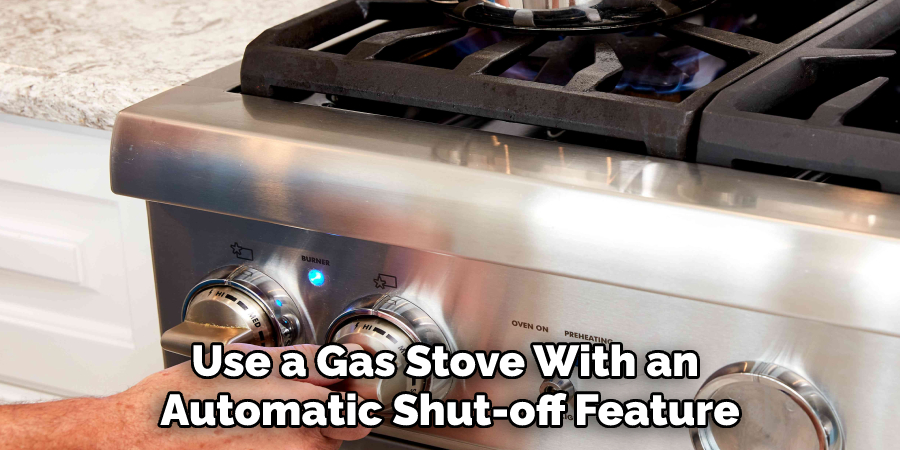
If you do not have an automatic shut-off feature, it is still possible to install one. While this may a more expensive option, it can help to keep you and your family safe. However, it is important to have a qualified technician install the shut-off so that everything is installed correctly.
2. Install a Carbon Monoxide Detector
Another way to prevent gas leaks is to install a carbon monoxide detector in your home. Carbon monoxide is a colorless, odorless gas that can be deadly if inhaled in large quantities. A carbon monoxide detector will sound an alarm if it detects high levels of carbon monoxide in the air, allowing you to take action to avoid exposure.
Check with your local fire department to find out what type of detector is best for your home. Additionally, be sure to test the battery regularly and replace it when necessary. It’s also important to regularly inspect any fuel-burning appliances in your home, as they are the most common cause of carbon monoxide poisoning.
3. Check for Leaks Regularly
It’s also important to regularly check for gas leaks in your home. You can do this by using a soap and water solution on all of the joints and connections in your gas lines. If you see any bubbles forming, that indicates a leak.
You should also be on the lookout for any gas odors, which can indicate a potential leak. If you notice either of these signs, contact your gas provider right away to fix the problem. Additionally, if you ever hear a hissing sound near your gas appliances, that is also an indication of a gas leak. Be sure to contact your gas provider if you ever notice any of these signs.
4. Repair Leaks Promptly
If you do find any leaks, it’s important to repair them promptly. Even small leaks can pose a serious risk to your health and safety. Contact a certified technician to repair the leak as soon as possible. They will use advanced tools and techniques to stop the leak quickly and safely.
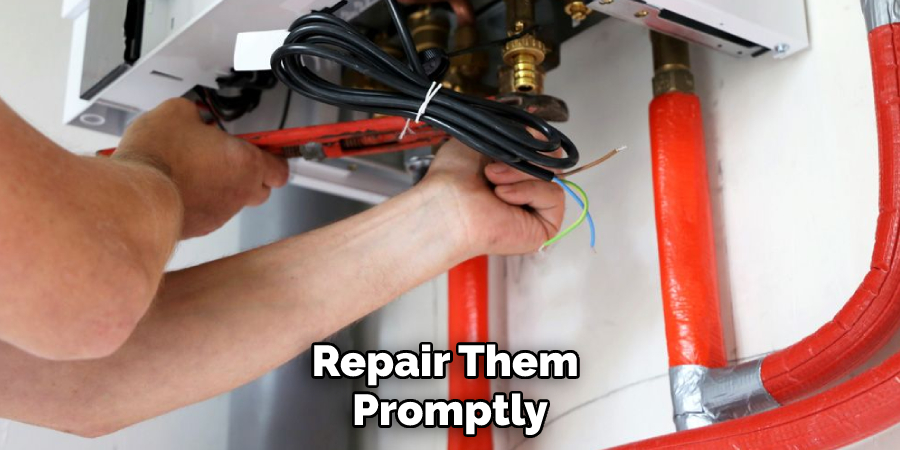
If you’re a tenant, it’s important to inform your landlord or building manager about the leak so they can take steps to have it repaired. If you’re a homeowner, make sure to contact a professional contractor or certified technician who has experience in dealing with gas leaks. Make sure that anyone who repairs your gas lines is qualified and experienced.
5. Avoid Using Gas Appliances in Enclosed Spaces
Another way to prevent gas leaks is to avoid using gas appliances in enclosed spaces. This includes using grills inside your home or garage, as well as using portable generators indoors. Using gas appliances in enclosed spaces can create a dangerous buildup of carbon monoxide, which poses a serious health risk to you and your family.
If it is necessary to use gas appliances in an enclosed space, make sure to install a carbon monoxide detector and open windows or doors while using the appliance. Additionally, be sure to read and follow the instructions that come with your gas appliances carefully.
6. Don’t Store Flammable Liquids Near Gas Appliances
You should also avoid storing flammable liquids near any gas appliances in your home. This includes things like gasoline, propane, and kerosene. These liquids can create a dangerous situation if they come into contact with gas appliances and may lead to leaks or even explosions.
It is best to keep these types of liquids in a safe, well-ventilated area far away from any gas appliances. While you’re at it, it may also be a good idea to have a carbon monoxide detector installed near gas appliances to alert you if there is a leak.
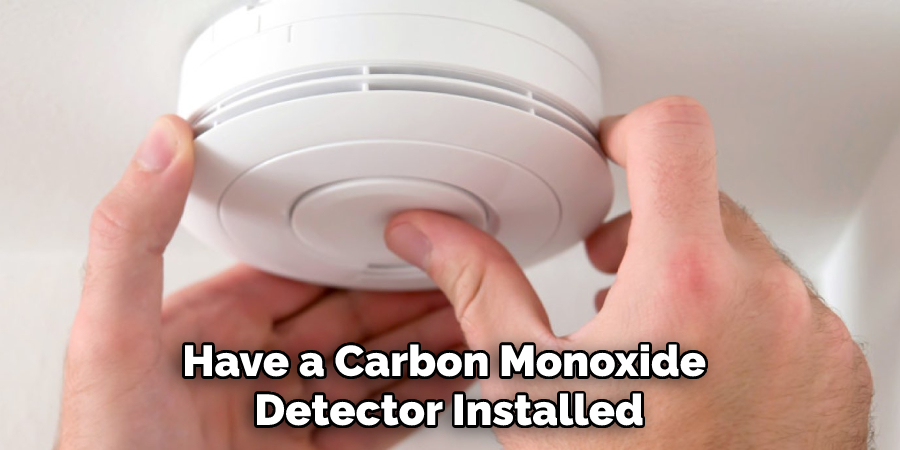
7. Keep Vents and Chimneys Clear
It’s important to keep vents and chimneys clear of any obstructions so that gases can escape safely from your home. This includes things like leaves, snow, and debris. Make sure that there is a clear pathway for the gas to escape and that it’s not blocked off by anything. Regularly check and clean the vents and chimneys to ensure that there are no obstructions.
If you notice any blockages, remove them immediately. Additionally, if you have a carbon monoxide detector installed in your home, make sure it is working properly and that it is not blocked in any way. This will help to alert you of a potential gas leak quickly and allow you to take action if necessary.
8. Educate Family Members and Houseguests about Gas Safety
Make sure that all family members and houseguests are aware of the dangers of gas leaks and what to do if they suspect one. This includes having them familiarize themselves with the location of all shut-off valves in your home. Make sure that they know to never use any kind of open flame or electrical device near a gas appliance, which could spark and ignite the gas.
Lastly, teach them never to tamper with the valves or try and fix any gas issues themselves. If they suspect a leak, advise them to leave your home immediately and call a professional. Taking the time to go over gas safety with those in your home can make a big difference in preventing a potentially dangerous situation.
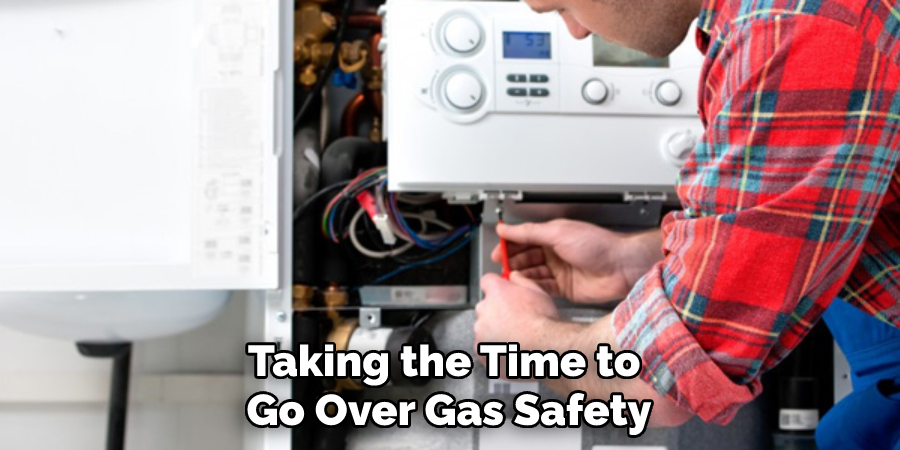
9. Choose Gas Appliances Carefully
When selecting new gas appliances for your home, make sure to choose ones that have been certified by a reputable organization such as Underwriters Laboratories (UL). These appliances have been tested for safety and are less likely to leak than those that have not been certified.
Also, make sure to follow the maintenance and usage instructions that come with the appliance, as failure to do so can lead to gas leaks or other hazards. Additionally, consider having a professional install the appliance to ensure that it is installed correctly and safely. However, if you decide to install it yourself, make sure to follow all instructions carefully and to double-check that the connections are secure before use.
Conclusion
All in all, the risk of a gas leak is not something anyone should take lightly even though it may seem like an inconvenience to keep track of potential hazards, being proactive and taking steps to prevent these leaks is incredibly important for the safety of your property and your family.
Check for any signs of leakage quickly, use high-quality materials when you install pipes and other equipment related to gas or fuel, monitor your fuel storage constantly, and inform your local authorities if anything suspicious arises.
By taking the proper precautions outlined here, you are significantly reducing the chances of experiencing a potentially catastrophic – and very dangerous – gas leak in your home or business. Thanks for reading, and we hope this has given you some inspiration on how to prevent gas leaks!

